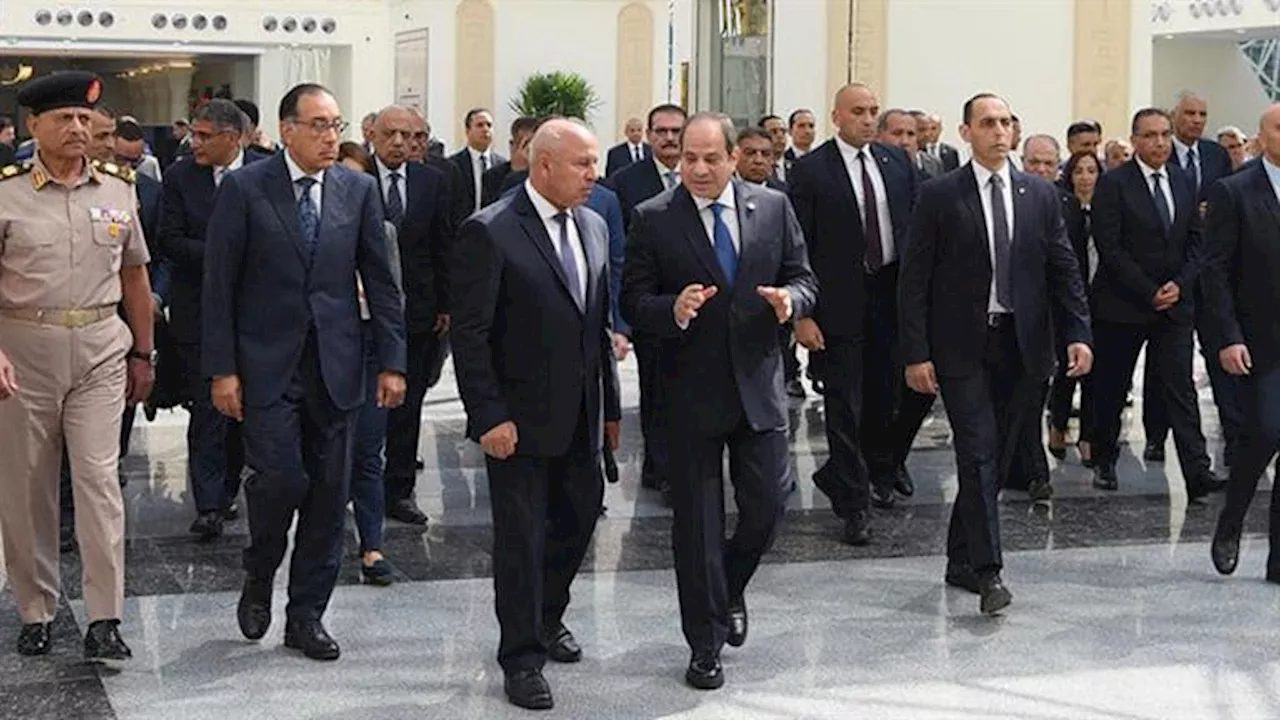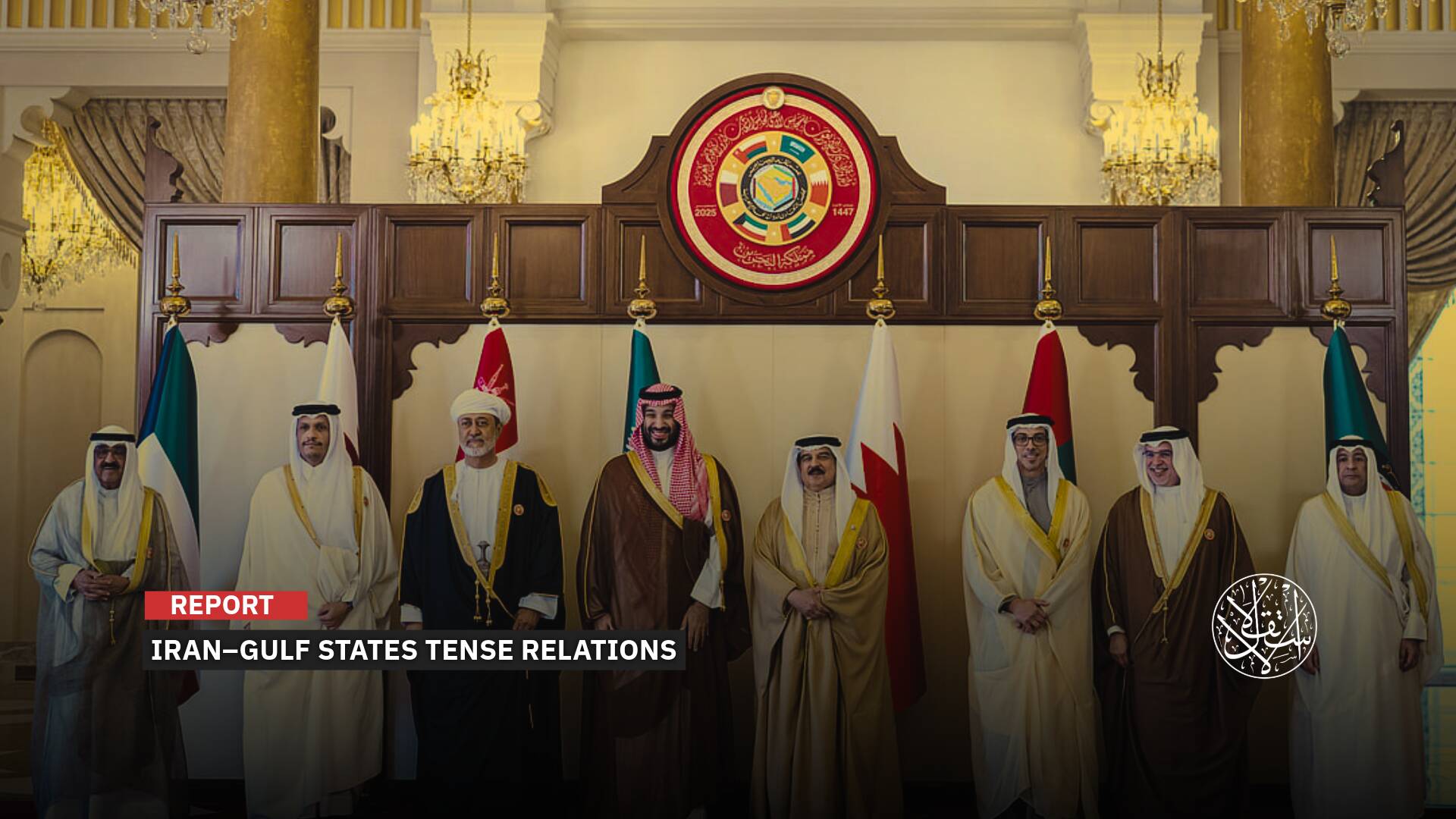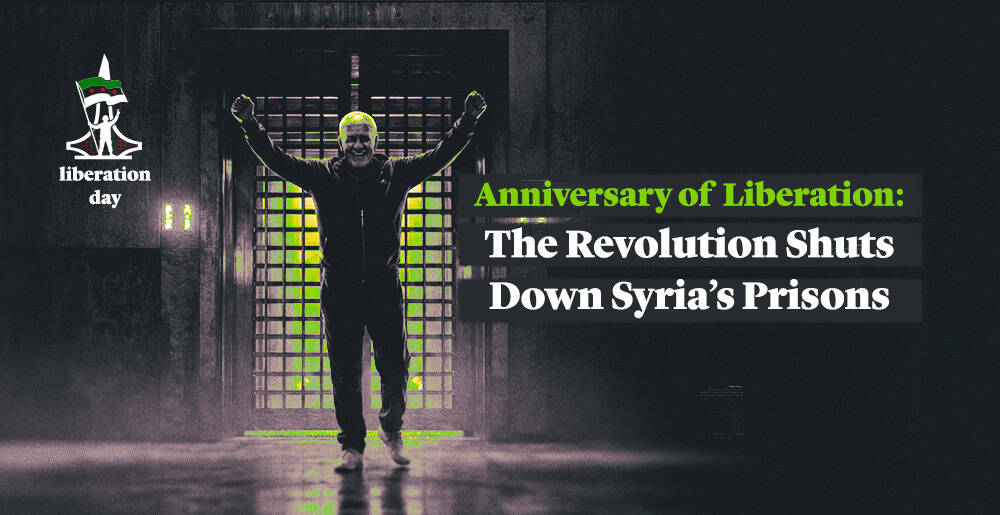Behind the Rhetoric: Egypt's 'War Economy'

"There is no economy in Egypt to even enter a state of war."
As the Israeli assault on Gaza and Lebanon continues, concerns mount over the potential regional escalation between Iran and “Israel”. In this intense context, Egyptian Prime Minister Mostafa Madbouly has, for the first time,
addressed the concept of a “war economy.” On October 9, 2024, Madbouly expressed his fears that the situation could spiral into a regional conflict, potentially compelling Egypt to adopt a “war economy” framework.
A "war economy" signifies an economic state of emergency marked by soaring prices, shortages of essential goods, and the imposition of specific economic and living conditions on citizens.
It often entails austerity measures aimed at curbing spending under the pretext of wartime necessity.
Looming Significant Restrictions
On October 12, 2024, President Abdel Fattah el-Sisi, in his speech, reprimanded Egyptians for spending millions on imports such as cheese, perfumes, cleaning products, and aluminum foil, attributing the dollar crisis to their consumption habits, served as a precursor to this imminent shift.
In light of discussions surrounding the substantial costs of importing essential goods—like cheese—and following the recent suggestion of a "war economy," a significant tightening of import regulations is expected.
While these stricter regulations are likely to be presented as a necessary response to a dollar shortage, they may actually stem from the deeper issue of the chronic failures of el-Sisi’s administration.
The term "war economy," which denotes the complete or partial restructuring of a nation's economy to support military efforts, first emerged during the American Civil War from 1861 to 1865. It reappeared during World War II when then-President Franklin D. Roosevelt highlighted the necessity of transitioning to a "war economy" in the event of an Axis victory of Germany, Italy, and Japan.
Egypt implemented a war economy from 1967 to 1973, when then-Prime Minister Aziz Sidky announced "a war budget" aimed at mobilizing and organizing the economy during wartime, ensuring that the armed forces’ needs were met.
It was particularly striking for Madbouly to catch Egyptians off guard with his reference to the government's potential shift toward a “war economy.”
In a press conference, Madbouly warned, “If the region enters a regional war [between Iran and Israeli Occupation], the consequences will be severe and the issue is completely different, and we will deal with a war economy, whether we like it or not as a state.”
The Egyptian government is grappling with unprecedented challenges, necessitating enhanced governance and the rationalization of all expenditures and consumption in preparation for the coming conditions and worst-case scenarios.
This announcement has sparked confusion, as Egypt is not currently at war and has not engaged in any military conflict, despite Israeli occupation of the border area, violations of the Camp David Accords, and threats to Egypt's national security along with the long-standing dispute over the Nile Dam with Ethiopia.
Egyptian politicians and economic experts suggest that the Prime Minister’s remarks may not reflect genuine concerns about Israeli aggression, as Egypt has not entered a "war economy" despite a year of Israeli war on Gaza and Lebanon.
Even if tensions escalate between “Israel” and Iran, the impact on Egypt would be similar to previous situations in Gaza and Lebanon; however, the Egyptian current economic conditions are worse than during past periods of war.
Experts consider the Egyptian Prime Minister's comments on increasing the fuel, electricity, and gas prices as a “pretext” to comply with International Monetary Fund (IMF) recommendations.
These measures have led to significant inflation and rising costs for food and essential items.
Based on experts’ expectations, many goods may soon vanish from the market, with import restrictions framed as a necessity to focus resources on essential products and possibly military supplies, even as Egypt remains free from active conflict.
The Egyptian Prime Minister Madbouly continued to lay the groundwork for significant increases in electricity and fuel prices, as well as the reduction of subsidies, claiming that the budget cannot sustain them.
Madbouly framed these moves as necessary to meet the demands of the International Monetary Fund and to address pending loans for Egypt.
Justifying Inflation
At a political research center, an Egyptian expert who preferred to remain anonymous, suggested that "the use of high-impact terms like 'war economy' is intended to justify the ongoing economic failures of the el-Sisi regime."
This expert indicated that the government is producing new excuses—such as COVID-19 and the Ukraine war—to explain what it terms "the disruption of economic reforms" and "the delay in development plans," thereby rationalizing the enduring failures of its policies since the coup on July 3, 2013.
He observed that the economic situation is "deteriorating from bad to worse" due to "structural" issues that are unrelated to a war economy or similar concepts. This alarming decline has been a consistent trend since el-Sisi came to power.
He outlined the root causes of the Egyptian economic crisis: "The reasons are well known and relate to the poor distribution of income sources and their expenditure on projects and resorts in the desert that benefit only the wealthy, generating commissions and incentives for regime insiders, as well as the construction of palaces and the purchase of presidential aircraft—none of which have any connection to warfare."
This expert pointed out that “Madbouly’s comments about a war economy may serve as a signal and preparation by the government for the public, indicating an upcoming phase of greater economic hardship, framed as a consequence of wars to justify inflation and a potential new currency devaluation.”

Experts have agreed that Egypt is unlikely to announce its entry into a "war economy," as this typically occurs when a country becomes directly involved in military confrontation, according to a report by BBC on October 10, 2024.
Such a shift would require directing the majority of resources toward military operations, which remains "unlikely for Egypt in the foreseeable future," according to the experts.
The BBC cited economic analyst Anwar al-Qassem from the Financial Times who thinks Egypt might need to implement measures similar to those used in wartime, given the troubled state of its economy, even without an actual conflict.
Egypt's primary revenue sources, such as earnings from the Suez Canal and tourism, have been adversely affected, and direct investment has declined. This may compel the country to reduce imports to preserve foreign currency reserves and utilize gold reserves to meet basic needs.
In a Facebook post, the Egyptian journalist Hafez al-Mirazi described the announcement of a "war economy" as one focused on "the economy and state of the wealthy of war, not war itself."
He then added, "Because without war, nothing remains in Egypt, over the past decade, that is not controlled by the military institution, or that is not mobilized for its use in land, water, finances, and manpower."
Hafez al- Mirazi pointed out that "the removal of subsidies and the unavailability of essential goods at prices affordable for the average citizen have brought Egyptians to a level of hardship that has not been experienced even during periods of actual war."
9 Years!
In an ironic twist, discussions surrounding a war economy have re-emerged during el-Sisi's administration whenever the government has grappled with economic crises—despite Egypt's lack of involvement in any actual conflict.
The concept of a "war economy" was first introduced nine years ago, in July 2015, when the phrase "a war economy is the solution" dominated headlines in pro-government publications.
As reported by El-Estiklal, on July 11, 2015, the Egyptian newspaper Youm7 published headlines stating, "A war economy is the solution [...] as long as we are in a state of war (though there is no war) and facing a budget deficit [...] why aren’t the government and the people living like their forebears?"
The Egyptian newspaper’s report stated, "Enough with importing caviar, gifts, cat food, and accessories; let’s save $60 billion by cutting back on provocative imports," adding "Egypt is enduring genuinely exceptional circumstances since the June 30 Revolution (the 2013 coup) and is confronting multiple wars that are straining the national economy."
Youm7 highlighted rising unemployment rates, the shuttering of hundreds of factories, stagnation in production, plummeting investment rates, increasing domestic debt, and a surge in imports.
It also referred to what it termed "new terrorism wars supported from abroad," arguing that such conditions necessitate serious consideration of extraordinary economic measures, or what is termed a "war economy," as well as indirect and non-traditional warfare.
Following Madbouly’s remarks about a war economy, el-Sisi criticized, on October 13, 2024, the skyrocketing bill for imports of goods such as mobile phones, chocolate, and aluminum foil, urging an end to indiscriminate imports.
Since the Prime Minister's announcement, Egyptians on social media have responded with biting sarcasm, with many declaring that “there is no real economy in Egypt to enter a state of war.”
Comments emphasized that any discussion of a "war economy" is merely a disingenuous justification and a maneuver to mask economic failures.
Former Deputy Prime Minister Ziad Bahaa-Eldin described the term "war economy," as introduced by Madbouly, as "inappropriate."
In an interview with the Saudi news al-Hadath, the Deputy Prime Minister at the time emphasized the need for increased investments, making the mention of a war economy all the more alarming.
The International Monetary Fund (IMF)
Despite the influx of billions into Egypt in 2024—estimated at $50 billion from the Emirati Ras el- Hikma deal, an $8 billion loan from the International Monetary Fund, and additional European and Gulf loans—indicators of economic crisis and foreign currency shortages have resurfaced.
This is largely attributed to the spending of these funds on debt repayments or the continuation of failed projects plagued by corruption.
Signs of this distress are evident in discussions about the failure to meet the terms of the agreement with the International Monetary Fund (IMF), leading to delays in disbursing the agreed loan tranches.
Consequently, Egypt faces risks of a credit rating downgrade, which are closely linked to the prospect of entering a war economy.
During his remarks about a "war economy," Madbouly confirmed that the IMF requested to postpone its review of the new $8 billion loan tranche scheduled for November 2024 until after its annual meetings.
This implies delays in loan disbursements and possibly reflects the IMF's dissatisfaction with the slow implementation of its demands to eliminate all subsidies, even though Egyptian authorities have already raised fuel and electricity prices by over 50 percent, with the Prime Minister indicating that further increases are forthcoming.
In response to the ongoing economic situation in Egypt, the Central Bank has implemented restrictions on foreign currency access for specific imports.
According to Reuters, the global news organization, “The central bank continues to prevent banks from providing foreign currency to import 13 goods, including fully assembled vehicles, mobile phones, and their accessories, fresh fruit, jewelry, televisions, electrical appliances and clothing, according to two of the bankers.”
The restrictions are likely contributing to a foreign currency shortage, which can lead to rising prices for goods that are in short supply. This economic pressure may jeopardize the government's finances and force it to implement price hikes, potentially framed as necessary due to a "war economy."
Revenue from the Suez Canal has plummeted by 60 percent, according to official figures, as inflation and unemployment continue to rise, intensifying internal economic pressures.
On October 3, 2024, IMF spokesperson Julie Kozack told Reuters that the escalation of conflict in the Middle East could have significant economic repercussions for the region and the global economy.
As geopolitical tensions continue to escalate in the region, Kozack highlighted that the primary impact of the war on the global economy has been an increase in the prices of essential commodities, including oil and grains, as well as rising shipping costs, with vessels avoiding attacks in the Red Sea.
In June 2024, the International Monetary Fund (IMF) announced significant progress in its collaboration with Egypt, stating that “International Monetary Fund (IMF) staff and the Egyptian authorities have reached staff-level agreement on a set of comprehensive policies and reforms,” and that “Egypt will have access to about US$820 million (SDR 618.1 million).”
A Debt-Ridden State
In July 2024, Egypt increased fuel prices by up to 15 percent, with Prime Minister Madbouly indicating further hikes are anticipated through the end of 2025.
From April 2020 to July 2024, the government raised gasoline prices by between 76 and 96 percent, while the cost of diesel—one of the country’s most widely used fuels—rose by 70 percent.
Despite these substantial increases, authorities revealed in a letter of intent related to the IMF's third review that "the gap between fuel prices and cost recovery levels has significantly widened since 2021."
The Egyptian government attributed this widening gap to notable shifts in currency exchange rates that have led to a devaluation of the local currency and heightened borrowing costs, resulting in increased fuel subsidies within the budget.
In March 2024, Cairo secured an $8 billion financial support package from the IMF to help control monetary policies that are fuelling inflation, necessitating price increases across a wide range of domestic products.
The government has raised the prices of several subsidized goods to address a staggering budget deficit of 505 billion Egyptian pounds ($10.3 billion) in the fiscal year ending June 30, 2024, alongside a sharp devaluation of the pound in 2022.
Following the third review at the end of June, Egypt received an $820 million tranche from the IMF, making it the second-largest debtor to the fund after Argentina, with debts totaling $13.3 billion.
Experts predict that Egypt will pay approximately $646 million in additional interest and fees to the IMF over the next five years, placing it fourth globally among countries incurring the highest supplementary charges, according to the Center for Economic Policy Research.
Observers have raised alarms about the decline in net foreign assets and recent decisions by the Central Bank regarding currency provision for imports, suggesting these developments could signal a return of the dollar shortage crisis in Egypt.
Fears are mounting that the country may again face an economic landscape where dollar liquidity evaporates, numerous goods are banned from purchase, and security campaigns are launched to seize funds alleged to violate monetary policy.
The recent price increases follow the decision to float the pound after the Ras El Hikma deal, with reserves previously climbing to $2.8 billion by the end of July 2024, only to begin a troubling decline in the following months, according to official statistics.
The discussion of the 'war economy' coincided with claims, shared by soothsayers, predicting an armed clash between Egypt and “Israel” at the border near the Rafah crossing.
When the Egyptian military conducted a "war inspection assembly" for the Sixth Armored Division of the Second Field Army, with President el-Sisi in attendance on October 8, 2024, analysts viewed it as a significant development conveying messages to several countries, particularly “Israel” and Ethiopia.
This comes in the wake of Israeli aggression against Gaza and Lebanon, which has impacted Egypt's regional stature and security. At the same time, Ethiopia has sought to assert its will over Cairo as it completes the filling of the Grand Ethiopian Renaissance Dam and gains control over the Nile's flow from its sources.
During the military assembly, el-Sisi stated, "Peace is Egypt’s strategic choice, we have no hidden agenda." The peace established between Egypt and “Israel” has accomplished what decades of conflict failed to achieve, and it is imperative for the world to acknowledge this reality.
In a 2019 interview with CBS News, el-Sisi identified the January 25, 2011 Revolution, which brought the Muslim Brotherhood to power, as Egypt's primary adversary, stating that "the real enemy is not Israel." He emphasized that Egypt has a broad range of cooperation with “Israel”, declaring that as of January, "Israel is no longer an enemy."
Sources
- Citizen movement will be calculated... Madbouly reveals the method of dealing with bad scenarios of regional war. [Arabic]
- War economy... What lies behind the statement of the Prime Minister of Egypt? [Arabic]
- Imports in the crosshairs of the Central Bank of Egypt... Will the dollar crisis return? [Arabic]
- IMF says escalation of Middle East conflict poses significant economic risks.
- el-Sisi: 'We import aluminum foil for $500 million, and you blame me for why the dollar has increased. [Arabic]









